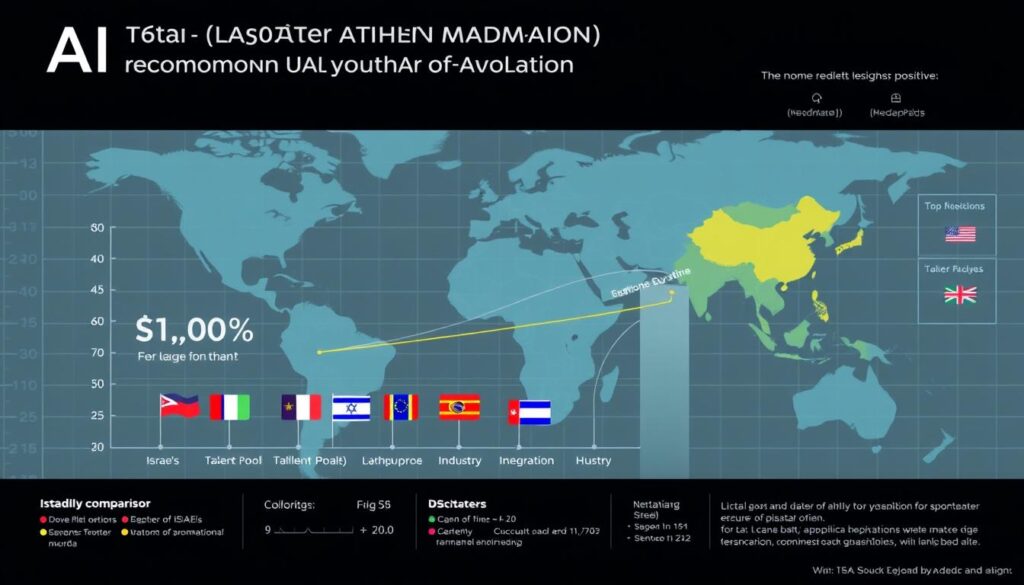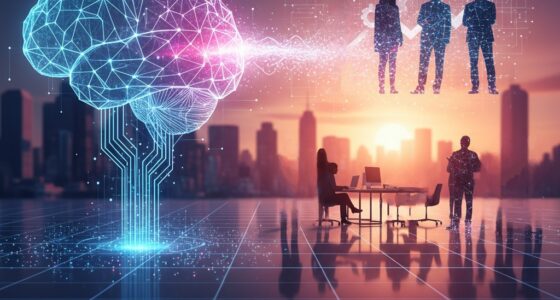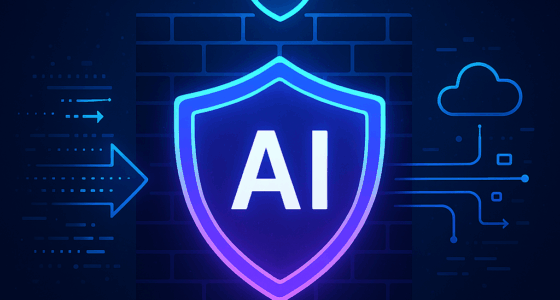The integration of artificial intelligence (AI) is significantly transforming the landscape of Israel’s workforce. As industries across the nation embrace AI adaptation, we witness a remarkable evolution in the labor market. This shift mirrors global trends where technological advancements are reshaping job dynamics, impacting employment opportunities, and altering the nature of existing roles. By examining Israel’s response to these changes, we can gain valuable insights into upcoming skill requirements and the potential for growth across various sectors.
Key Takeaways
- AI is driving significant changes in Israel’s workforce landscape.
- This evolution aligns with global trends in technology impacting labor markets.
- Understanding AI adaptation is crucial for future employment scenarios in Israel.
- New skills and roles will emerge as industries integrate AI solutions.
- The growth potential across sectors will depend on effective adaptation strategies.
The Rise of AI in Israel’s Economy
The rise of AI in Israel’s economy marks a significant turning point in the nation’s developmental trajectory. Israel, known for its vibrant technology sector, has nurtured a culture of innovation for decades. This evolution can be traced back to the late 20th century, when the country began establishing itself as a global tech hub that boasts both startups and established tech giants.
With substantial technology investments, local firms have spearheaded advancements in AI research and development. Industries such as healthcare, agriculture, and cybersecurity are now harnessing AI technologies to improve efficiency and productivity. These developments not only enhance services but also foster a competitive landscape that draws international attention and investment.
Research indicates that the AI growth in this sector has been integral to reshaping the overall Israel economy. Projections suggest that AI will make a notable contribution to the national GDP in the coming years. In turn, this surge in AI-related activities creates numerous opportunities for both entrepreneurs and established companies, ultimately positioning Israel at the forefront of global technological advancement.

Impact of AI on Employment Sectors in Israel
The AI impact on employment sectors in Israel manifests in numerous ways, dramatically transforming the landscape of work. Key industries like manufacturing, service, and information technology are experiencing significant shifts due to automation. Companies in these sectors increasingly adopt AI technologies to enhance productivity and streamline operations.
A notable effect of this automation is the reduction of jobs in traditional roles, particularly those that involve repetitive tasks. Lower-skilled positions may face obsolescence, prompting workers to adapt to the evolving demands of the job market. Nevertheless, the introduction of AI systems does not solely lead to job loss; new roles are emerging that require advanced technical skills, fostering workforce changes.
Industries heavily invested in AI report improvements in efficiency and output. This trend underscores the importance of reskilling and upskilling initiatives for employees. To thrive in an environment shaped by AI, workers must remain proactive in their career development and embrace new learning opportunities that align with the future of work.

How will Israeli workforce look when adapting to AI models
As Israel’s workforce moves towards greater integration of AI technologies, a transformation in the demand for skills and roles has become evident. Workers with competencies in data analysis, machine learning, and AI implementation will find themselves in increasing demand, while traditional positions in sectors like manufacturing may see a reduction in need. This evolution emphasizes the importance of workforce adaptation to align with modern technological advancements.
The shift in demand for skills and roles
The necessity for new skill sets is paramount in this AI-driven environment. Many companies are now prioritizing candidates who possess technical expertise related to AI. This shift reflects a growing focus on innovation and efficiency, causing a reevaluation of job roles across various industries. Employers aim to build teams capable of navigating complex AI systems, directly influencing recruitment strategies and professional development within organizations.
Training initiatives and government programs
To support this transition, numerous training programs and government support initiatives are being rolled out. These programs aim to equip current and future workers with the essential skills required to thrive in a tech-centric job market. Key aspects of these initiatives include:
- Technical skill workshops designed to enhance practical abilities.
- Partnerships with educational institutions promoting AI-related courses.
- Collaborations between industries and academic entities to benefit from shared resources and knowledge.
This concerted effort to refine the workforce not only addresses immediate skill demands but also prepares employees for long-term career growth in an AI-enabled landscape.
| Skill Area | Current Demand | Future Demand |
|---|---|---|
| Data Analysis | High | Very High |
| Machine Learning | Medium | High |
| AI Implementation | Low | High |
| Traditional Manufacturing Skills | High | Declining |

Challenges Faced by Workers in the AI Era
As Israel embraces the AI transition, many workers are grappling with significant workforce challenges. Job displacement remains a pressing concern, particularly for those in industries such as manufacturing and logistics. These employees often find themselves uncertain about their future roles amidst evolving technologies.
A major aspect of this transition involves the necessity for upskilling. Many employees may not possess the relevant skill sets required for emerging positions created by AI. This skills gap emphasizes the urgent need for training programs aimed at helping individuals adjust to the changing landscape of work.
Companies and governments must collaborate to develop strategies that promote an effective transition. Understanding how to support workers through this period of disruption is vital. Ensuring economic stability while providing opportunities for individuals to secure their job positions will play a crucial role in mitigating the impacts of job displacement.

| Challenges | Description | Potential Solutions |
|---|---|---|
| Job Displacement | Workers face uncertainty regarding their roles in AI-impacted sectors. | Career counseling and job placement services. |
| Lack of Skills | Many employees lack the necessary skills for new positions. | Investment in upskilling programs and workshops. |
| Integration of Technology | Challenges in adapting to new technologies and tools. | On-the-job training and mentorship programs. |
The evolution towards an AI-driven economy will necessitate ongoing attention to these challenges to ensure that workers are not left behind during this transformative period.
The Role of Education in AI Adaptation
In today’s rapidly evolving technological landscape, the education role in equipping the workforce for AI adaptation cannot be overstated. Institutions are increasingly recognizing the need to prepare students for a future dominated by artificial intelligence.
Incorporation of AI-related courses
Academic programs are integrating AI courses into their curricula to ensure students acquire the necessary skills. These AI courses focus on both theoretical foundations and practical applications, fostering an understanding of how to leverage technology in various fields. The demand for such specialized knowledge highlights a shift in educational focus, allowing for a more adaptable and skilled workforce.
Partnerships between industry and educational institutions
Industry partnerships are playing a crucial role in shaping educational offerings. Collaborations between tech companies and universities ensure that AI-related courses reflect current industry needs. These alliances create opportunities for internship programs and mentorships, allowing students to gain real-world experience while still in school. Engaging with industry professionals enhances the relevance of academic programs and aligns student training with the skills employers seek.

| Educational Institution | AI Courses Offered | Industry Partner |
|---|---|---|
| Stanford University | Machine Learning, Neural Networks | |
| MIT | Artificial Intelligence, Data Science | IBM |
| The University of California, Berkeley | Deep Learning, Computer Vision | Microsoft |
Such initiatives highlight the essential collaboration between education and the tech industry, effectively preparing the upcoming workforce for the challenges and opportunities presented by AI. By establishing strong education-industry ties, students can better navigate their future careers in an increasingly AI-driven job market.
Success Stories of Companies Utilizing AI
Numerous Israeli companies are at the forefront of AI adoption, showcasing remarkable success stories in various sectors. Organizations such as Mobileye have revolutionized transportation through advanced driver-assistance systems, highlighting the innovative practices that fuel their growth. By integrating AI into their operations, these companies improve efficiency, streamline product development, and enhance customer experiences.
Another example is Wix, a leading website development platform. Through AI-driven tools, Wix empowers users to create stunning websites with ease. These innovative practices not only attract more customers but also position Wix as a competitive player in the digital space.
Success stories extend beyond established companies to include startups like Cohere. This AI-focused startup harnesses language models to improve natural language processing, facilitating business solutions across industries. Such developments underscore how AI adoption fosters a thriving ecosystem of innovation in Israeli tech.
These examples serve as a clue to understanding how AI integration can yield substantial economic benefits. They showcase the transformative potential of AI, providing a blueprint for other companies aspiring to elevate their market presence.

Future Projections for Israel’s Workforce
Projections for Israel’s workforce indicate an exciting transformation driven by the increasing AI impact. As technological advancements reshape the job market, experts focus on key economic trends that will define the landscape ahead. Emerging data suggest a significant shift towards tech-savvy and creative roles, while traditional positions may see substantial reductions.
In the realm of job market predictions, sectors like technology and healthcare are not only poised for growth but are expected to leverage AI to improve productivity and working conditions. The culmination of these developments hints at a promising workforce future, characterized by innovation and flexibility, a necessary adaptation for both workers and employers.

Global Comparisons: Israel vs. Other Nations
Understanding Israel’s approach to AI adoption requires examining how it stacks up against other nations in terms of workforce strategies and integration methods. Notably, countries like the United States and China are leading the charge in AI implementation. Yet, Israel’s smaller size and nimbleness provide distinct advantages in adaptation speed and responsiveness.

Through global comparisons, emerging trends illustrate both commonalities and divergences in AI strategies. Countries are increasingly investing in training programs and technological infrastructure to bolster their workforce. Israel’s unique focus on high-tech industries showcases innovative methodologies that other nations might benefit from.
How Israel’s adaptation strategy measures against global trends
As international trends evolve, insights from Israel’s workforce strategies could illuminate pathways for improvement. Countries with larger populations may face challenges in swift policy updates, while Israel can tailor its initiatives more effectively. This flexibility allows for quicker trials and adjustments in the face of dynamic market needs.
Israel’s emphasis on collaboration between tech firms and educational institutions further exemplifies a progressive stance in comparison to other nations. By fostering a culture of continuous learning and adaptation, Israel positions itself to navigate the complex landscape of AI-led transformation effectively.
Conclusion
As we reflect on the evolution of Israel’s workforce through AI adaptation, it’s clear that a proactive approach is essential for navigating the transforming landscape. This workforce evolution summary highlights that while challenges are significant, the integration of AI offers myriad opportunities that can redefine careers and industries.
Investing in education and training programs is crucial for equipping workers with necessary skills. Initiatives fostered through partnerships between industry leaders and academic institutions will be pivotal. By embracing these collaborative efforts, Israel can enhance its position as a technology leader, ensuring a robust and versatile workforce.
Ultimately, the future outlook indicates that adaptation to AI is not merely an option; it is a requirement for growth and sustainability. By addressing challenges head-on and leveraging the unique potential of AI, Israel’s workforce can thrive in this new era, paving the way for innovative solutions and stronger economic foundations.









